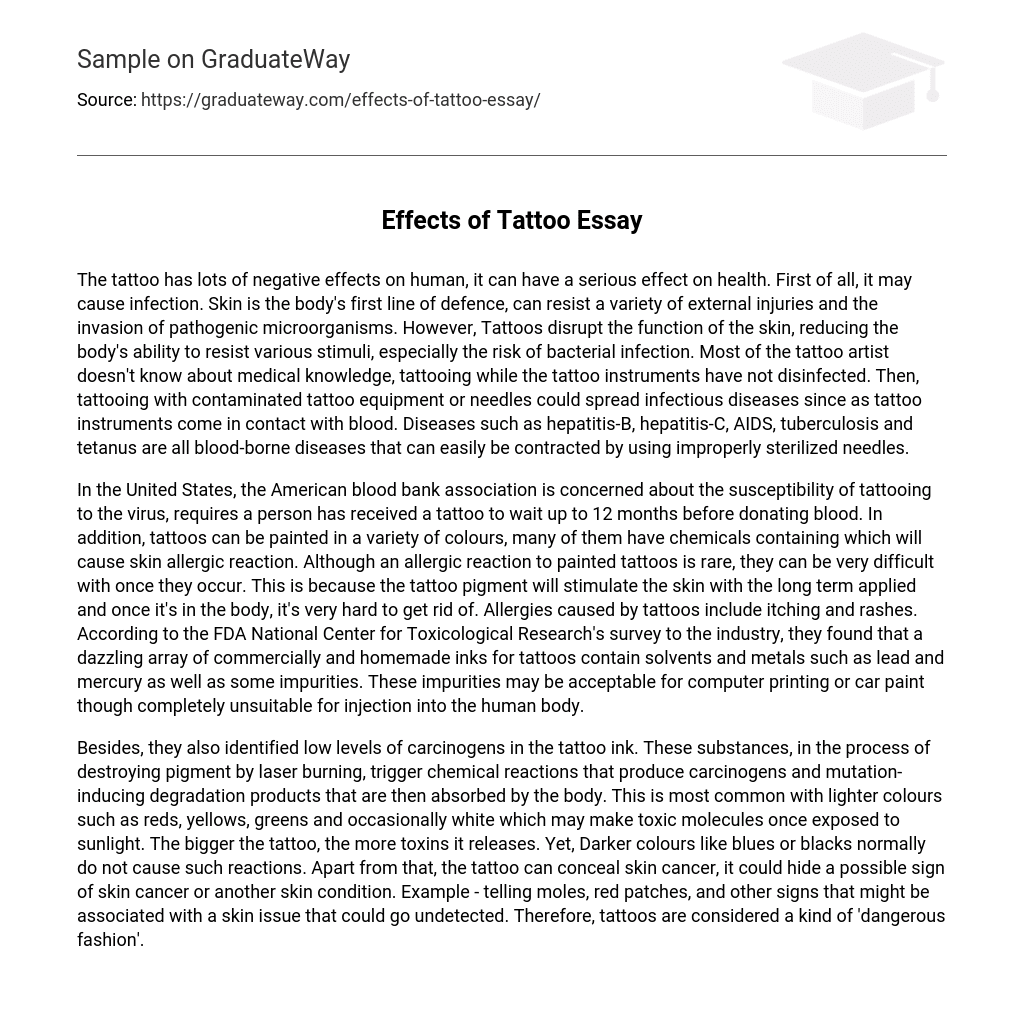The tattoo has lots of negative effects on human, it can have a serious effect on health. First of all, it may cause infection. Skin is the body’s first line of defence, can resist a variety of external injuries and the invasion of pathogenic microorganisms. However, Tattoos disrupt the function of the skin, reducing the body’s ability to resist various stimuli, especially the risk of bacterial infection. Most of the tattoo artist doesn’t know about medical knowledge, tattooing while the tattoo instruments have not disinfected. Then, tattooing with contaminated tattoo equipment or needles could spread infectious diseases since as tattoo instruments come in contact with blood. Diseases such as hepatitis-B, hepatitis-C, AIDS, tuberculosis and tetanus are all blood-borne diseases that can easily be contracted by using improperly sterilized needles.
In the United States, the American blood bank association is concerned about the susceptibility of tattooing to the virus, requires a person has received a tattoo to wait up to 12 months before donating blood. In addition, tattoos can be painted in a variety of colours, many of them have chemicals containing which will cause skin allergic reaction. Although an allergic reaction to painted tattoos is rare, they can be very difficult with once they occur. This is because the tattoo pigment will stimulate the skin with the long term applied and once it’s in the body, it’s very hard to get rid of. Allergies caused by tattoos include itching and rashes. According to the FDA National Center for Toxicological Research’s survey to the industry, they found that a dazzling array of commercially and homemade inks for tattoos contain solvents and metals such as lead and mercury as well as some impurities. These impurities may be acceptable for computer printing or car paint though completely unsuitable for injection into the human body.
Besides, they also identified low levels of carcinogens in the tattoo ink. These substances, in the process of destroying pigment by laser burning, trigger chemical reactions that produce carcinogens and mutation-inducing degradation products that are then absorbed by the body. This is most common with lighter colours such as reds, yellows, greens and occasionally white which may make toxic molecules once exposed to sunlight. The bigger the tattoo, the more toxins it releases. Yet, Darker colours like blues or blacks normally do not cause such reactions. Apart from that, the tattoo can conceal skin cancer, it could hide a possible sign of skin cancer or another skin condition. Example – telling moles, red patches, and other signs that might be associated with a skin issue that could go undetected. Therefore, tattoos are considered a kind of ‘dangerous fashion’.





